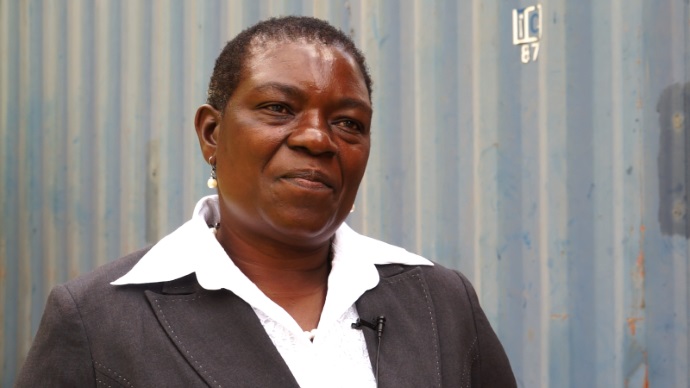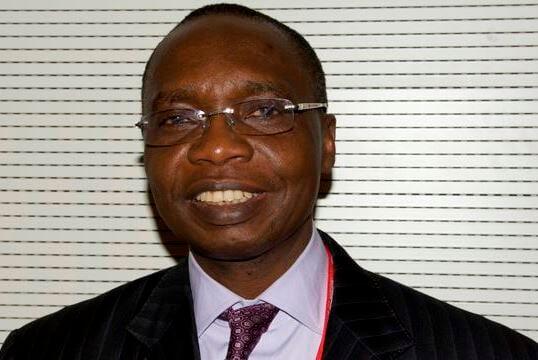The West and Central Africa Region of the United Nations Population Fund (UNFPA) is known for its high fertility rates, maternal mortality ratios and infant mortality rates subsequently lagging behind when it comes to contraceptive prevalence rate (7% in central Africa, 9% in west Africa) and skilled birth attendants. In an interview granted to Ayenew Haileselassie, WCARO regional director, Dr Benoit Kalasa, highlighted how his office is engaging governments and partners to help them make effective impacts in reversing trends noted in the region as an “effective family planning programme is a real development investment.”
The interview was done at the end of the 3rd International Family Planning Conference held 12th to 15th November in Addis Ababa, Ethiopia.
Q. What is the policy environment like in the region in terms of family planning and sexual & reproductive health?
A. Actually, as we have seen through the ICPD continental review, most countries have policies and programmes that make provision for availability of sexual & reproductive health information and services including family planning. So that is something that the governments have included in their health programmes. But now what we are discussing here is what is the size, the content and the quality of existing programmes to benefit girls and women? That is the question we should be discussing?
Q. So how do you find that issue?
A. From our perspective, as the United Nations Population Fund and as a regional office, we are taking that through different angles. The first angle is, western and central Africa is the region with lowest indicators in terms of contraceptive prevalence rate, skilled birth attendants. So what we are trying is to recommit the political leadership. That is why as UNFPA we did engage specific and selected governments to bring them here, the ministers and their technical staff, to come here and see what Ethiopia has been doing. We organized a field visit for them, but also to take advantage of the various presentations, the conversations in the corridor, to learn about what other countries are doing and the benefit their population are getting from it.
Q. What are the major reasons for the low prevalence of contraceptive use in the region?
A. There are several. Once again, if we take family planning as a basic human right for girls and women, and as an issue for dignity, then it is for the duty bearer, the government, the community, to make a provision for that. There is a variation for the political commitment on the issue. That is one of the reasons. There is an expression of that will; but the implementation is not following. So we have to work on that angle.
...We need to work on the implementation of the political commitment to family planning, address the supply and demand of commodities; And then work on social, cultural factors that can prevent the demand, Dr Kalasa
Second is the supply. Are the commodities available? Do we have the right information to provide, to reach out to young girls. As we are saying the forgotten group is 10-14. Do we have somewhere appropriate information, culturally sensitive, to speak to the young girls to speak about their bodies. That is another piece to look at. And that is why a big piece of our work is to buy commodities, to work with the government to store those commodities, and then to distribute them; and to make sure that we have a system that records the information, that is logistics information management system, and building the capacity in those areas. So we procure, we provide funding, we do advocacy to bring other partners on board. So that is the second piece, supply side.
The other piece now is the demand itself. Are the women demanding the product? What are the factors that are preventing the women or the girls to access information and services? There now we need to address the social barriers, be it cultural, religious, that are preventing them, or the relationship between men and women, boys and girls. That is why we are saying let us involve men and boys. We see here and there clear examples of social transformation in some countries. We have been seeing here the example of Niger where we have the Husband’s School – that is something where men are involved; they are championing now their girls to stay in school and not get married, fighting early marriage, their women to access family planning; their women to access health facilities for delivery.
These are the changes we are seeing not only in Niger but in other countries, too. The government of Sierra Leone, the president, the first lady took a national strategy against teenage pregnancy. That is political will. You have to address the political commitment, you have to address the supply part; you have to address the demand. And then you have to work on those social, cultural factors that can prevent the demand.
Q. What is the gravity of the problem there related to family planning and sexual & reproductive issues?
A. I will not talk about the gravity. We are just saying that we need to work harder to make it more prominent on the national development agenda, beyond the health sector and to be seen as a real development investment that everybody gets to benefit from when we have effective family planning programme. There is no gravity; there is just a need of agency. We need to move quickly to scale up and to reach out to the right target group.
Q. Some of the ministers were here. Do you think they will go back from this conference with some lessons learnt and with stronger political commitment?

A. Definitely. When we organized the field visit on Monday morning, some of the ministers were yet to arrive in Addis Ababa that evening. But when they received the feedback from those who went to the field with us, yesterday (Tuesday) they were asking me to organize another field visit for them to go and see what they believed it would not work in their countries. Now they see it and they say, if it is working here, we can do it, too. That is something I believe personally that they are going to sit with their technical staff and start working on it. So no doubt about it; 100%.
Q. Exactly what makes the Ethiopian experience different and a model for others?
Q. Are there no such structures in other countries?
A. There might be, but they have to be effective. So here we are talking about effectiveness of the structure in place, the efficiency of that structure.
Q. Yesterday the Ethiopian Minister of Health was saying that part of the reason for Ethiopia’s success was the unprecedented support from partners. Are there similar partnerships in other countries to ensure supply of commodities?
A. The same partners that are present in Ethiopia are present in other countries. The difference is again if you work in an environment where the policies, the programmes and the commitment are there as partner you just follow the Paris Declaration and you align. You coordinate yourself. In Ethiopia we have the HPN, in other countries we have the health development partners. But the way we are functioning here is different. It is just the way the relationship is being built and used by the government.


